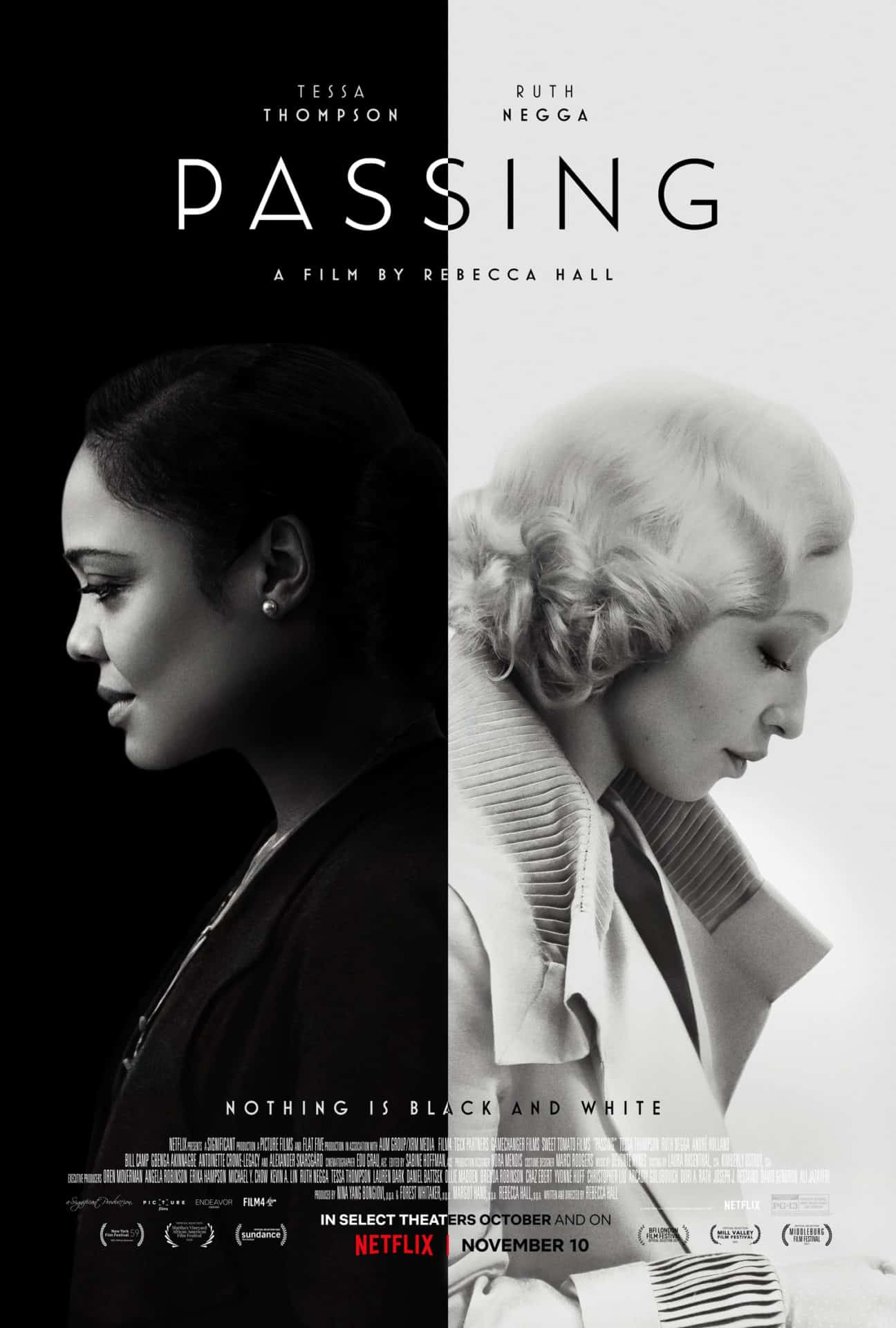
- Starring
- Tessa Thompson, Ruth Negga, André Holland
- Writer
- Rebecca Hall
- Director
- Rebecca Hall
- Rating
- PG-13 (United States)
- Running Time
- 98 minutes
- Release Date
- November 10th, 2021 (Netflix)
Overall Score
Rating Summary
For our earlier review of Passing from this year’s Sundance Film Festival, click here.
Arguably making one of the biggest splashes at this year’s Sundance Film Festival was actress Rebecca Hall’s directorial debut Passing, based on the book by Nella Larsen. This period character study dazzled with a whimsical score and some beautiful black and white cinematography and performances from Tessa Thompson and Ruth Negga. Showing plenty of vision, the film’s slower pace didn’t necessarily connect with viewers. Perhaps this was the reason why the film was recut following its Sundance debut before getting a theatrical and Netflix release come late October and early November. That being said, the film is surely not going to be for everyone as its slow pace and subject matter is likely to turn some viewers off. Therefore, the film is more likely to connect with fans of either lead actress or the book in which the film is based. The story may lack the depth to deliver a satisfying ending but in the end, it does more than enough, as mentioned, to get by and its relatively short running time ensures that it does not wear out its welcome.
Passing follows a pair of women named Irene Redfield (Thompson) and Clare Kendry (Negga) who live on opposite ends of the color line in 1920’s New York. After a chance reunion that saw the two reunite over one summer afternoon, Redfield’s life would be turned upside down as her perfectly-constructed life she had made for herself began to crumble under the weight of her and Kendry’s insecurities. As the two women’s lives became increasingly intertwined with Kendry inching further and further into Redfield’s life, their relationship devolved into an obsession of sorts where each seemed to yearn for the other’s life. This forced each to also look at the lies they told themselves and the feelings they repressed that have entrenched them in their respective lanes. That drama played out as a slow burn where it was hard to pin down the general mood or what was going on in these ladies’ heads. Based on body language alone, there was a connection there that did get interesting to watch play out.
Instead of dealing with the issues of the time that led each woman to the lanes they found themselves in, on opposite ends of racial lines, Passing saw the relationship between Redfield and Kendry become something more akin to a mutual infatuation for one another with undertones of aspirational jealousy. While the contrast of perspectives was somewhat compelling to watch, their subsequent rivalry would eventually glaze over some deeper issues and took most of the focus away. The drama that remained still worked for the most part where Redfield merely watched as the life she had made for herself slip away as Kendry looked for more out of her own at Redfield’s expense. As far as both women were concerned, something had to give but that moment would ultimately be met by a whimper as that buildup failed to pay off in a satisfying way.
In the end, the best part of Passing was the beautiful lead performances from Thompson and Negga as Redfield and Kendry. The film rests firmly on their shoulders and they deliver a solid central relationship that carried the film in spite of it not doing nearly enough with the characters or give them depth. Their mastery of the subtly and nuance of their complicated relationship made for a fun watch even though the film went about it a little too slowly as it seemed unsure where to take it. Thompson as Redfield carried the film but she was often the straight man to Negga’s Kendry who stole scenes with her dynamic personality and presence.
Overall, Passing is a more than passable period piece that is sure to mean more to some viewers than others but if anything, shows that Rebecca Hall has some vision.
still courtesy of Netflix
If you liked this, please read our other reviews here and don’t forget to follow us on Twitter or Instagram or like us on Facebook.

The EIC of the coincidentally-named keithlovesmovies.com. A Canadian who prefers to get out of the cold and into the warmth of a movie theatre.
Discover more from
Subscribe to get the latest posts sent to your email.
